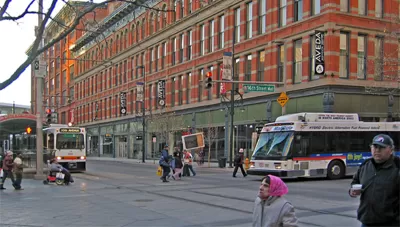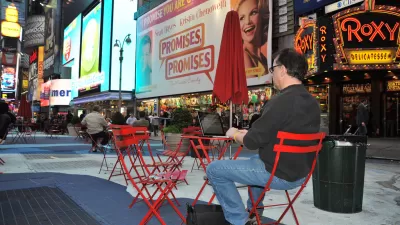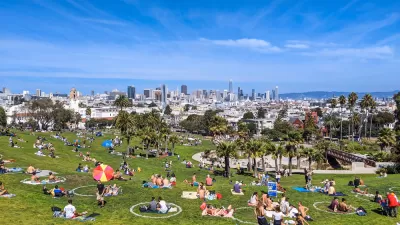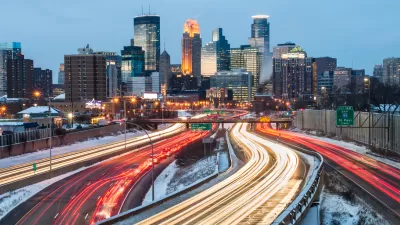Denver and Austin were finalists in the competition. Since then, they've found ways to implement their ideas.

78 cities applied to the Obama Administration's Smart Cities Challenge last year, proposing innovative uses of data, apps, and technology to improve transportation systems. Though Columbus, Ohio was the ultimate winner of $50 million in private and DOT dollars, Governing reports that many of the other cities are also moving forward on their ideas.
In Denver and Austin, just putting the submissions together "energized" city staff and fostered collaboration among people "who normally don't work side by side"—garnering a combination of other federal grants and public-private partnerships to support their plans. Austin is now creating a new regional center where "transportation officials from the city, state, toll roads, and transit agencies can coordinate their day-to-day operations with each other."
That kind of integration was an organizing principle in the Smart Cities Challenge, and for good reason: Coordination behind the scenes can lead to improved traffic and quicker solutions to problems on the ground.
“Ultimately, I don’t care if it’s a state engineer that hits the button that automatically gets more green time on city arterials, or if it’s a city traffic engineering saying, ‘There’s an accident over there on the freeway, so I better put up information signs up and down the freeway so that people know what to expect,” [Austin Transportation's Robert Spillar] said. “That seems simple, but I will tell you it’s like trying to jump over the Grand Canyon.”
FULL STORY: These Places Lost the Smart Cities Challenge. But They Say They Ended Up Ahead.

Maui's Vacation Rental Debate Turns Ugly
Verbal attacks, misinformation campaigns and fistfights plague a high-stakes debate to convert thousands of vacation rentals into long-term housing.

Planetizen Federal Action Tracker
A weekly monitor of how Trump’s orders and actions are impacting planners and planning in America.

In Urban Planning, AI Prompting Could be the New Design Thinking
Creativity has long been key to great urban design. What if we see AI as our new creative partner?

Portland Raises Parking Fees to Pay for Street Maintenance
The city is struggling to bridge a massive budget gap at the Bureau of Transportation, which largely depleted its reserves during the Civd-19 pandemic.

Spokane Mayor Introduces Housing Reforms Package
Mayor Lisa Brown’s proposals include deferring or waiving some development fees to encourage more affordable housing development.

Houston Mayor Kills Another Bike Lane
The mayor rejected a proposed bike lane in the Montrose district in keeping with his pledge to maintain car lanes.
Urban Design for Planners 1: Software Tools
This six-course series explores essential urban design concepts using open source software and equips planners with the tools they need to participate fully in the urban design process.
Planning for Universal Design
Learn the tools for implementing Universal Design in planning regulations.
Gallatin County Department of Planning & Community Development
Heyer Gruel & Associates PA
JM Goldson LLC
City of Camden Redevelopment Agency
City of Astoria
Transportation Research & Education Center (TREC) at Portland State University
Jefferson Parish Government
Camden Redevelopment Agency
City of Claremont





























